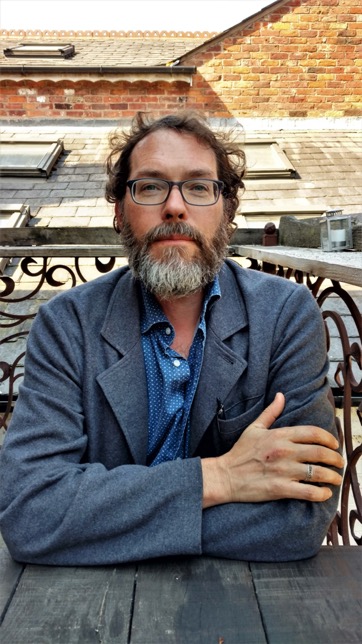Takeaway
The Art of Medicine requires balancing science, care for others, and care for ourselves. Caring for ourselves is particularly important when we're not feeling well.

Creative Arts in Medicine | November 2, 2023 | 2 min read
By David Kopacz, MD, University of Washington
I’m tired of omeprazole,
cimetidine, fluoxetine,
norfluoxetine (and goddamned grape fruit juice)
tired of all the substrates, inhibitors, and inducers
of some important
cytochrome P450 isoenzymes
maybe I should know them
maybe I shouldn’t
but right now,
I don’t want to
there is enough information
to satiate
the most voracious
obsessive-compulsive
mental appetite
but it is cold and damp
and I haven’t slept well the past 2 nights
I’ve got a bad tender point between
my right scapula and spine
my mind is hazy
and I feel sweaty
the black beans are good,
but me,
I am ill at ease
I wrote this poem when I was visiting my friend from medical school, Darin Dougherty, who was doing his psychiatric residency at Mass General. I wasn’t feeling that well and I was reading some articles I’d brought along with me while Darin was at work. The article that sparked this poem was called “Substrates, inhibitors, and inducers of some important cytochrome P450 isoenzymes.” There are no patients in this poem—the antagonist is the ever-expanding and never-ending stream of facts and knowledge to memorize.
I remember that after finals during our first semester of medical school, Darin and I took each other’s picture. We each stood next to the stack of textbooks, articles, and notes for one semester of medical school—they reached up to our waists. We held a cup of coffee, that universal aid to enhancing alertness and staying up late to study, raising it in salutation, like hoisting a beer mug. Each of us had big smiles on our faces, giddy from sleep deprivation, and with a sense of major accomplishment. The task of learning is endless. Maybe students and residents today don’t feel this as acutely because they can look up anything on their phone, whereas we were memorizing things in the 1990s.
Hippocrates wrote, “Life is short and Art is long; opportunity fleeting, experiment treacherous, judgment difficult.” Information and scientific knowledge continue to increase exponentially, and yet in the short life we have as physicians, we struggle to continually learn the Art, even when we feel unwell.
“Life is short and Art is long: opportunity fleeting, experiment treacherous, judgment difficult.”—Hippocrates
This piece expresses the views solely of the author. It does not necessarily represent the views of any organization, including Johns Hopkins Medicine.

